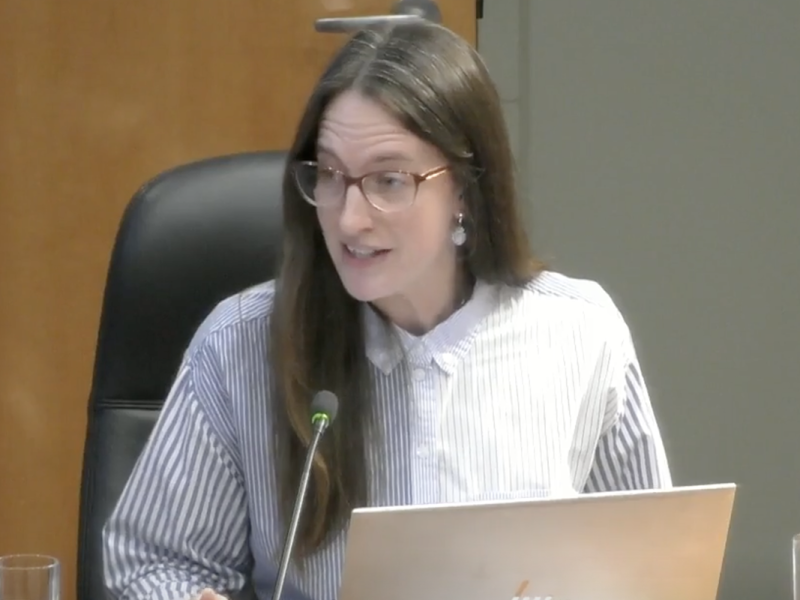
For B.C. disabled couple Sheena and Phillip Tiicham Muir, a proposed federal disability tax benefit feels like triage support in a deeply flawed system.
Disability assistance rates in B.C. are set below the poverty line. As a result, roughly 23 per cent of people living with severe disabilities live in poverty, according to the 2017 Canadian Survey on Disability, the last time a survey of that demographic was organized by the federal government. Put differently, people with disabilities make up 41 per cent of the low‑income population.
Now years of advocacy have culminated in a federal bill that could help level the financial playing field through a guaranteed income supplement — the first of its kind — for working-age Canadians who live with disabilities.
Bill C-22, or the Canada Disability Benefit Act, would give low-income disabled Canadians access to a tax-free, monthly payment, for an amount yet to be determined, in addition to provincial and territorial support.
“We’re not going to say ‘no, this won’t help’ to any little assistance we can get,” Sheena explains, who identifies as physically disabled and neurodivergent. “But if they tie this in with partner income, or place such a tight income cap like B.C. has, we’re still fighting to stay below the wage limit and survive on the bare minimum.”
Current provincial benefits average just over $16,000 a year for an individual, or $1,358 a month. But regulations cap the amount of extra income one is allowed on top of the provincial benefits. A disabled person living on their own is allowed an extra $15,000 per year. That limit increases to $18,000 for a couple, whether married or common-law, when one person is on assistance.
Both Sheena and Phillip Tiicham Muir are disabled, but only Sheena has been designated a Person with Disabilities within B.C. and can access disability assistance. But Phillip’s own physical disabilities keeping him from working full time are only a fraction of the reasons both parents work part time and side gigs to provide for their three children.
“All three of our kids are somewhere on the Autism spectrum,” Phillip explains. “It takes more than one person full time to care for them. If I go to work full time, that money goes straight into paying for home assistance and affects how much Sheena can claim.”
While there are longer term plans to gain stable income, Phillip says he’s constantly weighing whether the income he can make will put them ahead of whatever benefits they would lose.
All Canadians might need the Canada Disability Benefit Act
A moniker often found within the disabled community is “disability comes for everyone.” As professor and disability justice leader Rosemarie Garland-Thomson explains: “The fact that we will all become disabled if we live long enough is a reality many people who consider themselves able-bodied are reluctant to admit.”
New Democratic Party Nanaimo-Ladysmith MP Lisa Marie Barron says the Canada Disability Benefit Act has the chance to “provide those living with disabilities the dignity and respect that they need and deserve so that they’re not legislated into poverty.”
Barron voted in favour of Bill C-22 at third reading in the House of Commons and adoption of the bill on Feb. 2, along with all present members of parliament. The bill now awaits a third reading in Senate.
Speaking with The Discourse, she says community stories have continued to show her the need for increased financial support.
“I’ve spoken to a single mother on disability and working part time. She’s worrying every day about feeding her kids. She was scared last month not being able to make rent because her disability keeps her from working enough hours and the benefits aren’t enough.”
The struggles associated with living with disability and poverty were thrust into the spotlight when medical assistance in dying (MAID) legislation was amended in 2021 to include people whose natural death is not “reasonably foreseeable” — such as people living with chronic illnesses.
This change means that for some people living with disabilities, assisted death is easier to access than financial stability, as reported by The Tyee and Canadaland.
While the federal income supplement has the potential to relieve financial pressure, the Tiicham Muir family is concerned the Canada Disability Benefit Act would simply expand on the same flaws. For Philip especially, not implementing income caps could remove large hurdles not just for him but for his community.
“We’re not contributing to the economy in the way that we would be if we felt we were thriving. I’m not working primarily because of the income cap, but I want to be working and contributing to the economy.”
“No other Canadian’s income is considered entirely tied to their spouses” Sheena says. “My income is not my own, Phillip’s income is not his own, they’re reviewed together and that determines how much I get.”
If and when Bill C-22 passes, lawmakers will further clarify how much benefits are, how levels are assessed, and what caps there might be. But Sheena urges the government to reassess whether common law and married partners should be financially responsible for their disabled partners.
“That’s the largest thing that keeps people in dangerous situations. They can’t work more or become more financially secure because then they lose so much of their benefits. So they stay in relationships that are abusive.”
Advocacy group Disability Without Poverty is campaigning for citizens to write to their MP regarding Bill C-22 to ensure the benefit serves as a guaranteed “top-up” and does not claw back existing, meager benefits.
While the bill passed in the House of Commons with complete MP support and has a high chance of passing, the Senate is considering amendments. Other stakeholders, such as disability lawyers, have raised concerns that clauses in the legislation as written could allow the provinces and insurance companies to “claw back” existing disability payments when the new benefit comes into effect.
Barron says vocal support for the bill will continue to push the Canada Disability Benefit Act forward as it moves toward parliamentary review.
“It’s so important to keep putting the government’s feet to the flames, keep voicing your concerns. That’s how the Liberal government is going to be held accountable for this.”
But Sheena Tiicham Muir isn’t holding her breath just yet.
“The systems, the way it looks to me, are supposed to keep me disincentivized from using these supports. That’s the government, that’s how this all works. Why would I expect one [political] party to drastically change this over another party? Their goal is to make it so I don’t have the energy to access these supports.”



